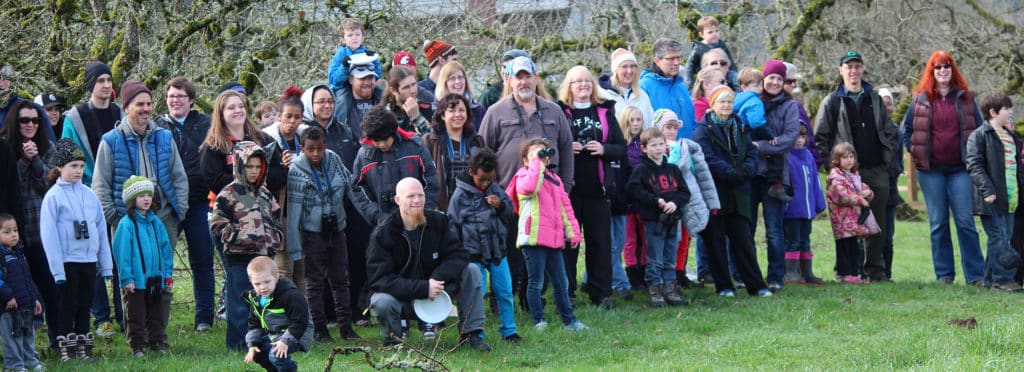Portland Puts Its Community First and Refuses New Authorizations for Zenith Oil Storage Facility
[Portland, OR] The City of Portland has denied a Land Use Compatibility Statement (LUCS), declaring that Zenith’s oil-by-rail storage and transfer facility in NW Portland is inconsistent with the City’s land use rules. This decision is consistent with years of policy commitments to reduce carbon emissions, address the climate emergency, and oppose oil trains. In January, the Department of Environmental Quality (DEQ) required Zenith to seek authorization from the City as part of its Title V air permit renewal. At the time, DEQ asserted that Zenith had “engaged in a significant intensification of the permitted terminal operations, including the storage and transfer of crude oil” and massively increased its throughput of oil through the facility even though the company assured regulators there would be no increase in throughput. The LUCS process gave the City the opportunity to exercise authority over Zenith to protect residents and the climate, and the City chose to put its community first.
Oregon State Representative Khanh Pham (HD 46) said:
“The City of Portland did the right thing and denied Zenith Energy’s application to traffic in dangerous fossil fuels through our neighborhoods. Credit goes to the hard work of advocates and community members who would not give up on Portland’s commitment to climate justice. The ruling on Zenith Energy is not only a right step for Portland’s climate commitments. It also represents an example of bold action that other cities and counties must take as the climate crisis accelerates.“
By denying the LUCS, the City concluded that Zenith’s oil-by-rail operations are inconsistent with the land use goals and policies set forth in its 2035 Comprehensive Plan, which is replete with policies requiring city officials to consider issues such as the off-site impacts of Zenith’s oil trains (including the impacts to low-income and BIPOC communities), seismic safety, and risk reduction. The City’s decision comes just weeks after the release of a new draft study highlighting the significant risks associated with storing large quantities of fossil fuels in Portland’s Critical Energy Infrastructure (CEI) Hub. The study noted that tanks in the CEI Hub that were constructed before 1990 are likely to spill 50-100% of their contents during a major seismic event—all of Zenith’s tanks fall into this category.
Prior to the City’s decision, Portland residents, community organizations, and elected officials spoke emphatically and in large numbers against approving the LUCS, including:
- 46 neighborhood organizations signed and submitted a letter demanding the LUCS be denied;
- 20 Oregon state legislators sent a letter to Commissioner Dan Ryan asking for a denial of the LUCS;
- The Multnomah County Board of Commissioners issued a statement opposing Zenith’s LUCS application;
- 17 environmental and community advocacy organizations sent a letter in opposition to granting the LUCS; and
- Thousands of residents called or emailed city officials.
Nick Caleb, Climate and Energy Attorney with Breach Collective said:
“The City of Portland made the correct decision in declaring Zenith’s operations incompatible with our comprehensive plan and land use laws. We need to be phasing out the fossil fuel economy as fast as possible while we promote renewable energy alternatives. Protecting the community and climate requires courageous decisions like the one our city just made.”
Dineen O’Rourke, Campaign Manager with 350PDX said:
“For over three years, thousands of community members have been fighting Zenith Energy’s crude oil facility everywhere from the streets, the river and train tracks, to the courtrooms and City Hall. This announcement is yet another example of how when people come together, we can stop the fossil fuel industry from continuing to destroy our climate, our communities, and our shared future. Grassroots organizing works. The City of Portland made the right decision in denying the LUCS — a decision based on science, health and safety, and justice. We must be focusing all of our efforts on 100% clean renewable energy for all, never dirty and polluting fossil fuels.”
Lauren Goldberg, Legal and Program Director with Columbia Riverkeeper said:
“We applaud the City for standing up to Big Oil and putting the health and safety of our communities first. The City’s choice was simple: take action on the climate crisis and protect public safety or cave to the oil industry. The city made the right choice.”
Debra Higbee Sudyka, Chair, Conservation Committee, Oregon Chapter of the Sierra Club said:
“The Sierra Club is thrilled that Portland has decided to follow its policies and protect its people and the environment. We are grateful to all of the many organizations and people who have united to stop this climate wrecking and dangerous project.”
Bob Sallinger, Conservation Director, Bird Alliance of Oregon said:
“This is great news for the community and the environment. The City stood up against big oil and demonstrated its commitment to advancing a vision of the river that is healthy, climate resilient and equitable. The Community has spent decades working to restore the river, the decision today is a decision to move forward on this journey rather than backwards. Thank you to all the groups and people who fought this process.”
Noelle Studer-Spevak, Board Member, Families for Climate said:
“We are incredibly relieved. Of all the hard current events to explain to children, this is some positive news that will let them know grown-ups are looking out for their safety. Tonight at dinner I can say, ‘Remember those postcards you colored and sent to City Hall and the Zenith banner you helped paint for the family bike ride last week? It worked!’ When people of all ages speak up and organize together with all their might, eventually good things can happen.”
Travis Williams, Executive Director and Riverkeeper at Willamette Riverkeeper, said:
“We are proud that the City of Portland has turned the table on Big Oil to protect the Willamette River, its wildlife, and our river communities. We look forward to the City steering the river towards meeting and exceeding Greenway, climate and clean energy goals.”



